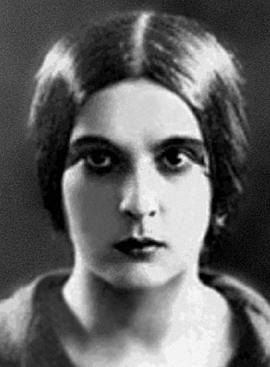Related Research Articles
The Mars program was a series of uncrewed spacecraft launched by the Soviet Union between 1960 and 1973. The spacecraft were intended to explore Mars, and included flyby probes, landers and orbiters.

The Soviet space program was the state space program of the Union of Soviet Socialist Republics (USSR), active from 1955 until the dissolution of the Soviet Union in 1991. Contrary to its American, European, and Chinese competitors, which had their programs run under single coordinating agencies, the Soviet space program was divided between several internally competing design bureaus led by Korolev, Kerimov, Keldysh, Yangel, Glushko, Chelomey, Makeyev, Chertok and Reshetnev. Several of these bureaus were subordinated to the Ministry of General Machine-Building. The Soviet space program served as an important marker of claims by the Soviet Union to its superpower status.

2K, often referred to as Ptichka, is the second Buran-class orbiter, produced as part of the Soviet/Russian Buran programme. Although 2K was the closest to being completed of any of the Buran-class orbiters, it was never finished. The program was officially cancelled in 1993, at which point the shuttle was 95-97% complete. The proposed official name for 2K was Burya.

TMK was the designation of a Soviet space exploration project to send a crewed flight to Mars and Venus without landing.

Yakov Alexandrovich Protazanov was a Russian and Soviet film director and screenwriter, and one of the founding fathers of cinema of Russia. He was an Honored Artist of the Russian SFSR (1935) and Uzbek SSR (1944).
Aelita is a 1924 Soviet silent film.

Gorky Film Studio is a film studio in Moscow, Russian Federation. By the end of the Soviet Union, Gorky Film Studio had produced more than 1,000 films. Many film classics were filmed at the Gorky Film Studio throughout its history and some of these were granted international awards at various film festivals.

Aelita also known as Aelita, or The Decline of Mars is a 1923 science fiction novel by Russian author Aleksey Tolstoy.

Flight to Mars is a 1951 American Cinecolor science fiction film drama, produced by Walter Mirisch for Monogram Pictures, directed by Lesley Selander, that stars Marguerite Chapman, Cameron Mitchell, and Arthur Franz.

Viktor Andreyevich Simov was a Russian painter and scenographer.
The Martian Piloted Complex or MPK was a Soviet Union human mission to Mars proposed in 1956-62 by Mikhail Tikhonravov.

Yuliya Ippolitovna Solntseva was a Soviet actress and film director. As an actress, she is known for starring in the silent sci-fi classic Aelita (1924). She is the first female winner of the Best Director Award at Cannes film festival in the 20th century and the first woman to win a directing prize at any of the major European film festivals, for the film Chronicle of Flaming Years (1961), a war drama about Soviet resistance to Nazi occupation in 1941.

Aelita, also known as Aelita: Queen of Mars, is a 1924 Soviet silent science fiction film directed by Yakov Protazanov and produced at the Mezhrabpom-Rus film studio. It was based on Alexei Tolstoy's 1923 novel of the same name. Nikolai Tseretelli and Valentina Kuindzhi were cast in leading roles.
Olga Larionova is the pen name of Olga Nikolayevna Tideman, a Russian science fiction author who began in the Soviet era. Her debut novel was A Leopard from the top of Kilimanjaro from 1965. Her story A Tale of Kings was in the anthology Earth and Elsewhere, which gained her notice in the West. She is one of the few successful female Russian science fiction writers of her generation. She won the Aelita Prize in 1987 and remains one of the few women to win it as an individual writer.

Natalya Georgyevna Gundareva was a Soviet Russian film and theatre actress, one of the leading figures at the Mayakovsky Theatre where she worked since 1971. People's Artist of Russia (1986) and the USSR State Prize (1984) laureate, as well as a four times winner of the Soviet Screen magazine's Soviet Actress of the Year poll, Gundareva is best remembered for her leading parts in Sweet Woman (1976), Autumn Marathon (1979) and Once Upon a Time Twenty Years Later (1981).
Viktor Dmitrievič Kolupaev was a Russian scientist and soft science fiction author who won the Aelita Prize in 1986 and 1988. Kolupaev was born in Nezametny, Yakutia, attended school in Krasnoyarsk and moved in 1954 to Tomsk where he attended the Tomsk Polytechnic Institute and became a member of the Siberian Physical-Technical Institute of the Tomsk State University, where he worked in mathematics and bionics. He started writing fiction in 1970.

A super heavy-lift launch vehicle is a rocket that can lift to low Earth orbit a "super heavy payload", which is defined as more than 50 metric tons (110,000 lb) by the United States and as more than 100 metric tons (220,000 lb) by Russia. It is the most capable launch vehicle classification by mass to orbit, exceeding that of the heavy-lift launch vehicle classification.
Mars Princess, Martian Princess, or Princess of Mars may refer to:

Aelita was a Soviet design of a version of a Soyuz spacecraft started in 1978. The Aelita was part of the Soyuz programme, but was planned to use an unmanned Soyuz spacecraft as an infrared astronomy telescope satellite. A Soyuz spacecraft was planned to be modified to become the Aelita project satellite. The Aelita project not completed, and was cancelled in 1982.
References
- ↑ Brian Harvey, Russian Planetary Exploration. History, Development, Legacy and Prospects, 2007, p. 302
- ↑ Mark Wade, MEK
- ↑ Asif A. Siddiqi, Challenge to Apollo. The Soviet Union and the Space Race, 1945-1974, 2000, Chapter 17: Dreams Unfulfilled
- ↑ Zheleznyakov A., «Аэлита», «МАВР» и другие проекты советской пилотируемой экспедиции на Марс.
- ↑ Сергей Филиппенков, "Проект 'Аэлита' ", "Жуковские вести", 11 August 1999
